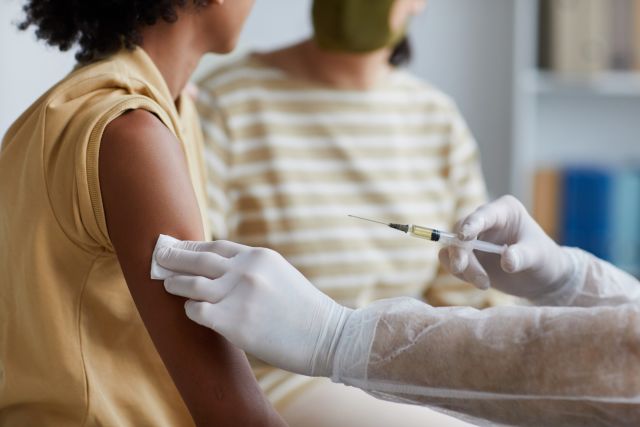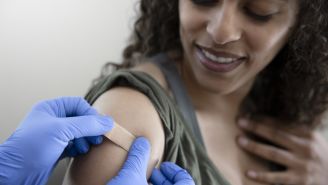Updated on June 28, 2024.
The CDC recommends a variety of vaccines for people during the first two decades of their life, and while many people reach age 18 with all their recommended immunizations, sometimes people miss vaccinations, or miss the necessary number of doses for a particular vaccination. Many people missed recommended vaccines during 2020, when the COVID-19 pandemic prevented many people from getting routine healthcare.
Here, we’ll look at what parents can do to make sure a teenager (teen) is caught up on any recommended vaccinations. While this information can help your teen get caught up on any vaccination, we will be using the hepatitis A (HepA) vaccine as an example. The HepA vaccine protects against the hepatitis A virus (HAV), which causes a highly contagious liver infection.
Determine what your teen needs
The first step to determining what recommended vaccinations your teen needs is determining what vaccinations they have already had. To answer this question, you’ll need two key pieces of information:
- A list of vaccinations that your teen has already had
- A list of all the recommended vaccinations
In an ideal world, everyone would be keeping a personal health record for themselves and members of their family. A personal health record (PHR) is exactly what it sounds like—a file or document containing information about a person’s medical history. It differs from a medical record kept by a healthcare provider’s office because it is collected and updated by an individual.
If you’re not keeping a PHR for yourself or your family members (or not keeping it as organized and updated as you’d like), it's never too late to start. Plus, vaccinations are an important element of a PHR, and gathering vaccination records is a great starting point where you’ll already be taking the first steps.
If you do not have copies of your teen’s immunization records, you can obtain these by contacting your child’s healthcare providers. Vaccinations are often given by pediatricians, but vaccinations can also be given at pharmacies, and in some cases, may have been given at an urgent care setting. Contact any healthcare providers that your teen has seen and ask for copies of their records.
Immunization records should include:
- The specific vaccine being given. This includes the brand name (sometimes called a trade name) and the generic names. There are different vaccines by different manufacturers that protect against the same conditions. For example, there are two different HepA vaccines available, which are sold under different brand names.
- The dates that each dose of the vaccine was given. The majority of recommended vaccines require multiple doses, and dosing schedules can vary depending on the age that a vaccine series is started (a series is the number of doses given and the preferred amount of time between each dose). For example, the HepA vaccine requires two doses scheduled six months apart. The first dose is typically given between 12 and 23 months of age, but people older than 12 to 23 months can and should receive the vaccine.
If you cannot find a specific piece of information, speak with your child’s healthcare provider.
Partnering with your teen’s pediatrician
Once you know what vaccines your teen has had, you will want to compare this list against the list of recommended vaccines. A complete list of vaccines recommended for people under the age of 18 is available from the CDC. The CDC also has guidelines for getting teens caught up on vaccinations.
While you may want to review this information on your own, you will definitely want to review it with a pediatrician, who will be your best source of information. A pediatrician will be familiar with recommended vaccinations and catch-up schedules, and they will be able to answer any questions you have. If it turns out your teen is behind on any recommended vaccinations, a pediatrician can put together a catch-up schedule to get your teen’s immunity up to date as quickly and safely as possible.







